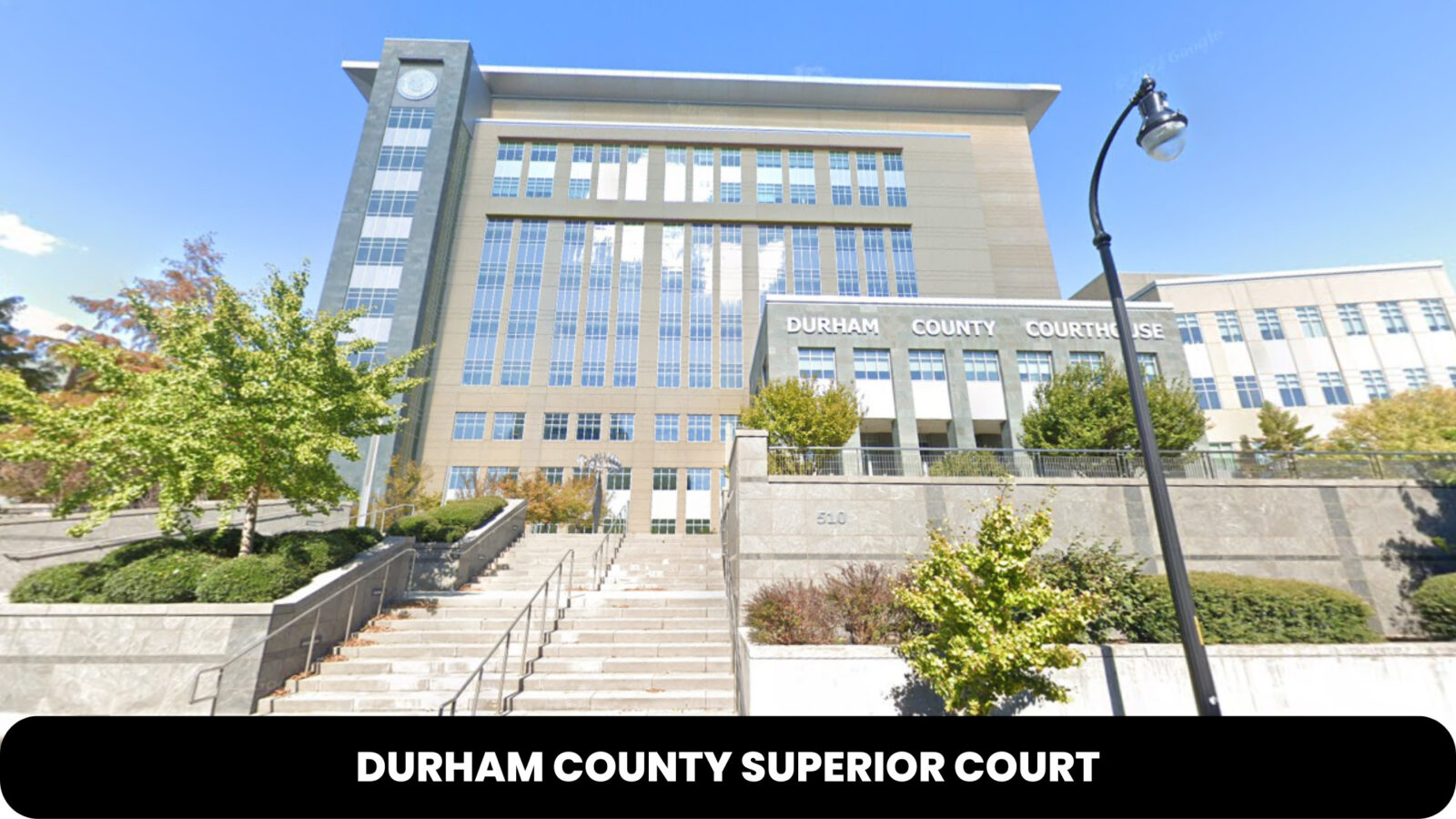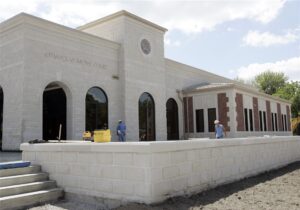Durham County Superior Court
Time
Working Hours:
Monday:
8:30 am–5 pm
Tuesday:
8:30 am–5 pm
Wednesday:
8:30 am–5 pm
Thursday:
8:30 am–5 pm
Friday:
8:30 am–5 pm
Saturday: closed
Sunday: closed
Connect with a Attorney
Durham County Superior Court is an essential component of the North Carolina judicial system, responsible for handling a wide range of legal matters within the county. the court has a rich history and plays a vital role in administering justice, ensuring fair trials, and resolving disputes. This article will explore the various aspects of Durham County Superior Court, including its jurisdiction, structure, court procedures, case types, and the support services available to litigants. Whether you are a resident of Durham County or simply interested in the legal system, this article will provide valuable insights into the workings of the Durham County Superior Court.
Introduction to Durham County Superior Court
Durham County Superior Court is a trial court located in Durham County, North Carolina. It is one of the superior courts in the state’s judicial system and has jurisdiction over a broad range of cases. The court operates under the principles of fairness, impartiality, and adherence to the rule of law. It aims to provide a fair and efficient judicial process for all parties involved.
History of Durham County Superior Court
The history of Durham County Superior Court dates back to its establishment in 1898-1899. Over the years, it has witnessed significant developments and changes in response to the evolving legal landscape and the needs of the community. Understanding the court’s history provides insight into its growth, challenges, and the shaping of its current operations.
Jurisdiction and Functions of Durham County Superior Court
Durham County Superior Court holds jurisdiction over a wide range of cases, including both civil and criminal matters. It serves as a court of general jurisdiction, meaning it has the authority to hear various types of cases unless exclusive jurisdiction is given to other specialized courts. The court’s functions include conducting trials, issuing judgments, resolving disputes, and ensuring the fair administration of justice.
Structure and Organization of Durham County Superior Court
The structure and organization of Durham County Superior Court are designed to facilitate the smooth functioning of the court system. The court consists of multiple divisions, each with specific responsibilities and duties. The chief judge oversees the overall administration of the court, while other judges and court staff contribute to the efficient operation of the court.
Court Procedures and Processes in Durham County Superior Court
When a case is brought before Durham County Superior Court, it follows specific procedures and processes to ensure fairness and justice. Understanding these procedures is crucial for litigants and legal professionals alike. From the filing of a complaint or indictment to the final judgment or verdict, the court follows a systematic approach to ensure a fair and timely resolution.
Role of Judges and Court Staff in Durham County Superior Court
Judges and court staff play pivotal roles in Durham County Superior Court. Judges preside over cases, ensure proper application of the law, and make impartial decisions based on the evidence and arguments presented. Court staff provide essential support, managing administrative tasks, facilitating proceedings, and assisting litigants with procedural matters.
Types of Cases Heard in Durham County Superior Court
Durham County Superior Court handles a wide range of cases, reflecting the diverse legal needs of the community. The court’s jurisdiction covers criminal cases, civil cases, family law cases, probate and estate cases, and land and property cases. Each case type has its unique characteristics, procedures, and considerations within the court.
Criminal Cases in Durham County Superior Court
Criminal cases in Durham County Superior Court involve offenses that are considered more serious than those handled in lower courts. These cases may include felonies, such as homicide, robbery, or drug trafficking. The court follows stringent procedures to ensure a fair trial, protect the rights of the accused, and safeguard the interests of the community.
Civil Cases in Durham County Superior Court
Civil cases in Durham County Superior Court encompass a broad spectrum of legal disputes between individuals, organizations, or entities. These cases can involve contract disputes, personal injury claims, property disputes, and more. The court aims to provide a fair and efficient resolution to civil disputes, considering the applicable laws and evidence presented.
Family Law Cases in Durham County Superior Court
Family law cases in Durham County Superior Court focus on legal matters related to family relationships and domestic issues. These cases include divorce, child custody, child support, alimony, and adoption. The court recognizes the sensitivity of family law matters and strives to protect the well-being of all individuals involved, especially children.
Probate and Estate Cases in Durham County Superior Court
Probate and estate cases involve the legal process of administering the assets and estate of a deceased person. Durham County Superior Court handles these cases, ensuring the proper distribution of assets, resolution of disputes, and appointment of guardians for minors. The court’s role is to oversee the probate process and ensure compliance with applicable laws.
Land and Property Cases in Durham County Superior Court
Durham County Superior Court is responsible for addressing land and property-related cases within its jurisdiction. These cases may involve disputes over property ownership, boundary disputes, land use issues, or zoning regulations. The court aims to provide fair resolutions while considering the complexities of property law and the interests of all parties involved.
Support Services and Resources Available in Durham County Superior Court
Durham County Superior Court offers various support services and resources to assist litigants and enhance access to justice. These services may include self-help centers, legal aid clinics, interpreters for non-English speakers, and mediation programs. The court recognizes the importance of ensuring equal access to justice and strives to provide assistance to those who may require it.
Technology and Innovation in Durham County Superior Court
Durham County Superior Court embraces technology and innovation to improve court processes and enhance efficiency. From electronic filing systems to online access to court records, technology plays a significant role in facilitating access to justice and streamlining court operations. The court continues to explore new ways to leverage technology for the benefit of litigants and the community.
Durham County Superior Court Case Search
If you’re looking to search for cases in Durham County Superior Court, you can access the court’s online case search portal for convenient and efficient retrieval of case information. The Durham County Superior Court provides this valuable resource to the public, enabling individuals to access important details about ongoing and past cases. By utilizing the case search feature, you can easily find information regarding case status, hearing dates, parties involved, and other relevant details. This online tool streamlines the process of accessing case information and promotes transparency within the Durham County judicial system.
Durham County District Court Judges
The Durham County District Court has a dedicated panel of judges who play a crucial role in administering justice and presiding over cases within the county. These judges bring their expertise, knowledge, and experience to ensure fair and impartial hearings in the district court. The judges of Durham County District Court are responsible for hearing various types of cases, including criminal, civil, family law, and traffic violations. They are committed to upholding the principles of justice, adhering to the law, and protecting the rights of all individuals involved in legal proceedings.
Durham County Court Dates
If you have a case or need to attend a court hearing in Durham County, it’s important to be aware of the scheduled court dates. Durham County Court dates are determined based on the type of case and the court’s docket. Whether it’s a criminal trial, a civil hearing, a family law matter, or any other legal proceeding, knowing the assigned court date allows you to prepare accordingly and ensure your presence when required. It is advisable to check with the Durham County Superior Court or the respective district court for the most accurate and up-to-date information regarding your court date.
Durham County Divorce Records
Divorce records in Durham County are essential documents that reflect the legal dissolution of a marriage. These records provide information about the divorce proceedings, including the names of the parties involved, the date of the divorce, the grounds for divorce, and any related court orders or settlements. If you are in need of obtaining Durham County divorce records, you can typically request them from the Durham County Clerk of Court. It is advisable to contact the clerk’s office or visit their official website to understand the specific process, required documentation, and any associated fees for accessing divorce records.
Durham County Clerk of Court Phone Number
The Durham County Clerk of Court serves as a valuable resource for individuals seeking information or assistance with various court-related matters. If you need to contact the Durham County Clerk of Court’s office, you can reach them at +1 919-808-3000. The clerk’s office can provide guidance and information regarding case filings, accessing court records, obtaining copies of documents, and other administrative services. It is recommended to contact the clerk’s office during their regular business hours for prompt and accurate assistance.
Conclusion
Durham County Superior Court serves as the cornerstone of the judicial system in Durham County, North Carolina. Its history, structure, and functions highlight the court’s commitment to upholding justice, ensuring fair trials, and resolving legal disputes. By understanding the workings of Durham County Superior Court, individuals can navigate the legal system more effectively and gain a deeper appreciation for the administration of justice within their community.
FAQs
1. How can I file a case in Durham County Superior Court?
To file a case in Durham County Superior Court, you will need to follow the specific procedures outlined by the court. Typically, you will need to complete the necessary forms, pay any applicable fees, and submit your case to the court clerk’s office. It is advisable to consult with an attorney or seek legal guidance to ensure proper compliance with the court’s requirements.
2. Can I represent myself in Durham County Superior Court?
Yes, individuals have the right to represent themselves in Durham County Superior Court. It is called appearing “pro se.” However, it is essential to understand that navigating the legal process can be complex, and having legal representation can significantly benefit your case. Consider consulting with an attorney to assess your options and make informed decisions.
3. How long does it take to resolve a case in Durham County Superior Court?
The time it takes to resolve a case in Durham County Superior Court can vary depending on various factors, including the complexity of the case, the court’s caseload, and the availability of witnesses and evidence. Some cases may be resolved quickly, while others may require extensive litigation and can take months or even years to reach a conclusion.
4. Are court records in Durham County Superior Court public?
In general, court records in Durham County Superior Court are considered public records, accessible to the public unless sealed by court order or protected by specific legal provisions. However, certain confidential or sensitive information, such as personal identifiers or sensitive case details, may be redacted or restricted from public access.
5. How can I access court records in Durham County Superior Court?
You can access court records in Durham County Superior Court by visiting the court clerk’s office in person or through online portals, if available. Depending on the jurisdiction, there may be fees associated with obtaining copies of court records. It is advisable to contact the court clerk’s office or consult their website for specific instructions on accessing court records.







